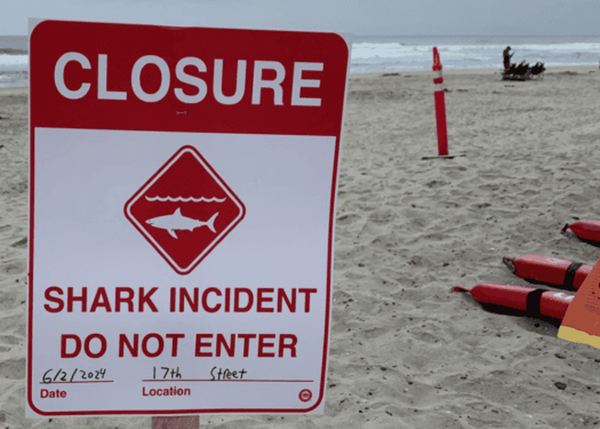
Let’s start with a confession. My name is Max, and I love smoked salmon.
Growing up, it was the fancy fish that came out at Christmas. As an adult, if smoked salmon and I met at a casino buffet (always the buffet) I’d pile that plate high, without shame, driven by my desire to get my money’s worth. A local coffee shop does a smoked salmon bagel, complete with jalapeño cream cheese, that’s been a go-to order of mine for years. But despite my love for the smoked fish, I fear our relationship has turned toxic.
While farmed Atlantic salmon has been commonplace in Australian restaurants and dining tables for years, the industry in Tasmania – where the majority of the country’s salmon farming takes place – has lately faced criticism for its environmental impact, including the use of antibiotics and anti-seal explosives.
The Sustainable Seafood Guide, which helps consumers make ethical seafood choices, gives Tasmanian farmed salmon a red or “say no” rating; while Richard Flanagan’s Toxic, released in 2021, outlined many of the arguments against the industry. But I can read all the literature I like – ultimately, it falls upon me, the consumer, to change my behaviour.

But simply telling people not to eat something is ineffective, and more so now, when how and what we eat has become so charged. Restriction, for me at least, turns to temptation, so I’m on the hunt for viable alternatives to Atlantic salmon.
One possible solution: smoked trout, a “far superior product” according to Stephen Hodges, veteran seafood chef and co-author of the Australian Fish and Seafood Cookbook. You could argue there’s a degree of commercial bias, as Hodges has launched a range of cold and hot smoked products using freshwater rainbow trout from Victoria (also known as Victorian High Country trout).
A metric for measuring the sustainability of a fish species is their fish-feed ratios: well-rated species have a 1:1 ratio, where the amount of farmed fish is the same as the amount of wild fish being harvested for its feed. With trout, it’s “a kilo in, a kilo out,” says Hodges.
Rainbow trout, which also includes “ocean trout”, has a yellow or “eat less” rating in The Sustainable Seafood Guide - an improvement on farmed Atlantic salmon. The guide says the amount of wild-caught fish in trout feed “has been reduced over recent years”, but it still exceeds the amount of rainbow trout produced. So while Hodges’ trout might have a similar silky mouthfeel and flavour to smoked salmon, it doesn’t completely absolve me.

Debate around lab-grown food and cellular agriculture is complex, but it’s worth noting California-based start-up Wildtype is developing a salmon alternative using processes that grow fish cells in stainless steel tanks. Their products aren’t available on the Australian market just yet, but closer to home and less sci-fi, UpRoot Food claim to have made Australia’s first plant-based smoked salmon alternative, with an ingredients list that predominantly comprises carrots (91%) plus sunflower oil, apple cider vinegar and kelp.
Fish alternatives made from soy protein, pea protein and konjac have been available in the east and south-east Asian market for many years. Shannon Martinez of Melbourne’s popular vegan deli-restaurant Smith & Daughters has tried many ways to make fishless fish, but when it comes to making a smoked salmon alternative, smoked watermelon is her go-to for taste and texture.
The watermelon is slow roasted at 120C for several hours, resulting in a tray “full of caramelised watermelon juice, because all the liquid’s come out of it”, and a watermelon that “totally transforms,” into something that’s firm and more flesh-like, says Martinez. “You cut it up into big slabs, roast it, then smoke it, and then slice it super thin,” she says. But at the end of the day, “it’s still fucking watermelon”.
To counteract fruit sugars, she finishes the watermelon in a brine of kombu and vegan fish sauce for savouriness; then adds a little omega three oil to replicate salmon’s fattiness on the palate. The “smoked salmon” is especially popular around Christmas at Smith & Deli; it’s also found in the watermelon tiradito at Lona Misa, the vegetarian restaurant at Ovolo hotel in South Yarra where Martinez oversees the menu.
Martinez, however, has a commercial kitchen and the commercial inclination to create a good product – home cooks do not. Alice Zaslavsky, author of In Praise of Veg, recalls an attempt at the watermelon method for her regular spot on ABC breakfast television. “Too much fuss,” she says with a laugh. “It took three days. I felt like it was an ordeal … cooking needs to be fun, and the juice needs to be worth the squeeze.”
So like UpRoot’s alternative salmon product, carrots are Zaslavsky’s weapons of choice. Zaslavsky bakes them at a low temperature until they’re soft, but not falling apart, then uses a sharp peeler to shave long slices. They’re marinated in soy sauce, perhaps a little smoked salt, olive oil, or – her preference – avocado oil “because that’s nice and rich and salmon and avocado are good friends”.

For sweetness, she adds a touch of honey, though this can be substituted with maple syrup for vegans. The “smoked salmon” finds a good home in a bagel, layered with cream cheese, Spanish onion and dill – serve it like this, “and people are going to be very satisfied,” Zaslavsky says.
So, while alternatives abound, is my resolve strong enough to quit Atlantic salmon entirely? Despite the labour involved, I’d give Martinez’s and Zaslavsky’s recipes a spin should I have a spare weekend to fill.
Smoked trout is a slight environmental improvement on salmon, and could on occasion find its way into my shopping basket, especially around Christmas time. I can’t, however, shake my personal distrust of lab-grown salmon substitutes.
In the end, I’m only human. So if you find me at my local cafe, biting into an actual smoked-salmon bagel, please, forgive me for my sins.







